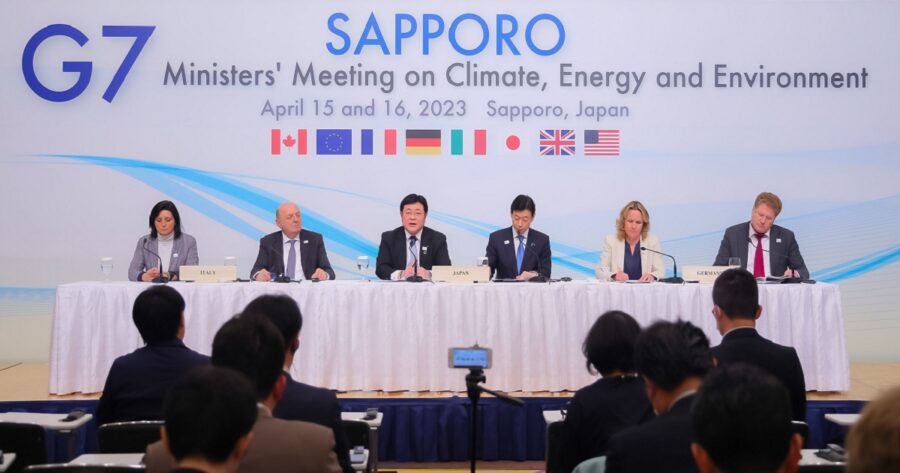An agreement has been reached between the UK, US, Canada, Japan, and France at the Nuclear Energy Forum at the G7 in Sapporo, Japan, aimed at isolating Putin’s Russia from the international nuclear energy market. Five of the seven nations will collaborate to undermine Russia’s grip on supply chains by leveraging their respective resources and capabilities of each country’s civil nuclear power sectors. The agreement will support the stable supply of fuels for today’s needs and guarantee the safe and secure development and deployment of fuels for the advanced reactors of tomorrow.
The objective of the agreement is to push Putin out of the nuclear fuel market entirely, cutting off another means for him to fund further attacks on Ukraine and leaving Russia out in the cold. The agreement will also strengthen the respective nuclear energy sectors of the five nations, key to boosting their domestic energy security and bringing down electricity bills for their citizens.
Nuclear fuel is essential to operate nuclear power stations, which provide around 15% of the UK’s electricity supply, with a target to increase it to 25% by 2050. Speaking at the G7 Energy Ministers’ Meeting in Sapporo, the Energy Security Secretary Grant Shapps said that this agreement, alongside investment in cleaner, cheaper, and more secure renewable energy sources, would be a crucial part of making the UK energy independent.
The UK has been at the forefront of global efforts to support Ukraine, defeat Putin, and ensure neither he nor anyone like him can ever think they can hold the world to ransom over their energy again. The UK is taking proactive steps in this space, including through the Nuclear Fuel Fund, launched in January. It will provide up to £75 million to ensure the UK has the fuel production capabilities needed to support a nuclear renaissance, backing the government’s ambition to secure up to 24GW of nuclear power by 2050.
The UK has decades of expertise in nuclear fuel production, playing a vital role in supporting the energy security of the UK fleet and those of international partners. The agreement at the Nuclear Energy Forum at the G7 in Sapporo will act as a springboard for these five countries to make swift progress, ensuring the secure supply of uranium fuel through the development of shared supply chains that isolate Russia.
At the summit, all nations also agreed to accelerate the phase-out of unabated fossil fuels, with a particular focus on coal, by agreeing to work together to stop new unabated coal plants from being constructed – a G7 first. New collective targets back this for the use of offshore wind and solar energy. The G7 has agreed to increase offshore wind capacity by 150GW and solar PV to 1,000 GW by 2030. The UK will account for a quarter of the offshore wind target, which they are already on track to meet.
Together, the G7 commitments deal a blow to Russia, demonstrating the international resolve to isolate Putin further. As more countries move away from fossil fuels and towards renewables, this will cut off a vital income stream for his regime once and for all. It also means the greater use of cheaper, cleaner, and more secure energy sources will boost energy independence, shield the UK and others from volatile international fossil fuel markets, and ultimately cut the cost of supplying power to homes and people’s bills.
While the agreement supports the respective countries’ nuclear energy sectors, contributing to energy security, it is notable that Germany and Italy did not sign on to the agreement, potentially due to differing views on energy security and a preference for renewable energy sources over nuclear energy.









